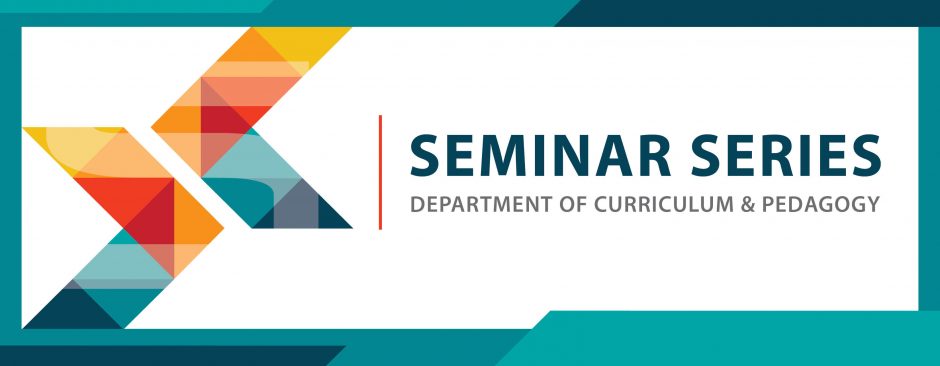
Dr. Amelia M. Kraehe | Associate Professor of Art and Visual Culture Education, Affiliate Faculty in Human Rights Practice, and Co-founder and Co-director of the Racial Justice Studio at The University of Arizona
Friday, March 26, 2021 | 12:30 – 2:00 pm (PST)
Faculty Host: Dr. Sandrine Han
View the Seminar Poster
No Recording Permission
Abstract
The art world is a bastion of white liberalism. Whether situated in art museums, the theater, symphony orchestras, or Hollywood, whiteness functions as an invisible yet dominant framework for the arts. In educational institutions, the arts are often part of diversity and inclusion initiatives aimed at enriching “underserved students,” a euphemism that typically refers to Black and brown children and youth, particularly those living in conditions of economic vulnerability and neglect. These initiatives stem from a belief that the arts and arts education are inherently good, elevating these students intellectually, culturally, and emotionally. The beneficent view of the arts is persuasive in its appeal to white liberalism, a political philosophy of individual rights and freedoms that is a globally hegemonic feature of modern societies. Despite good intent, white liberal discourses in the arts frequently undermine the freedom dreams of non-White people. Indeed, the arts have been used to malign blackness, “civilize” Indigenous people, and assimilate new immigrants into White ways of being. This presentation explores the relationship between the arts and white liberalism in education. It critically examines the “civilizing” function of the arts in schools and suggests counter practices for teachers who seek creative ways to advance racial equity.
Short Bio
Amelia M. Kraehe, Ph.D. is currently Associate Professor of Art and Visual Culture Education, Affiliate Faculty in Human Rights Practice, and Co-founder and Co-director of the Racial Justice Studio at The University of Arizona. Her research and teaching focus on how the arts and arts education can challenge, but also reinforce, systems of inequality. She explores this contradiction by investigating the ways in which the arts, as both a disciplinary discourse and as creative cultural practices, mediate social movements, ideological formations, and identity development. She is recipient of the 2020 Mac Arthur Goodwin Award for Distinguished Service in the Profession from the National Art Education Association. She co-edited The Palgrave Handbook of Race and the Arts in Education and Pedagogies in the Flesh: Case Studies on the Embodiment of Sociocultural Differences in Education. Her forthcoming book is Race and Art Education (Davis Publications).